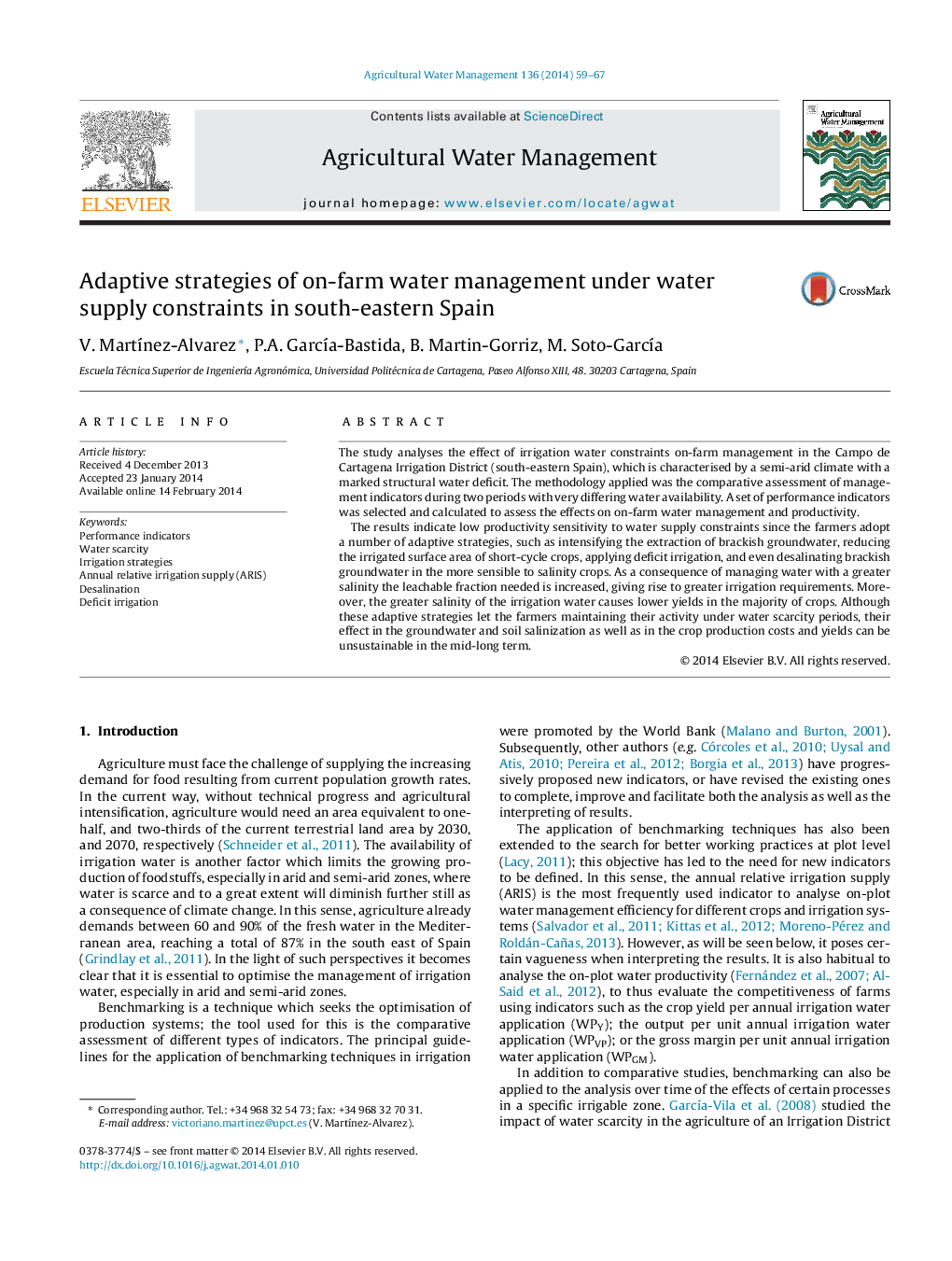| Article ID | Journal | Published Year | Pages | File Type |
|---|---|---|---|---|
| 4478721 | Agricultural Water Management | 2014 | 9 Pages |
•Adaptive strategies let the farmers maintaining their activity under constraints.•Main strategies are intensifying groundwater extraction, deficit irrigation, and reducing short-cycle crops.•Adaptive strategies are unsustainable in the mid-long term due to environmental and economical issues.•Crop prices affect water productivity in monetary terms more than water scarcity.•Two new indicators are proposed for analysing irrigation water supply.
The study analyses the effect of irrigation water constraints on-farm management in the Campo de Cartagena Irrigation District (south-eastern Spain), which is characterised by a semi-arid climate with a marked structural water deficit. The methodology applied was the comparative assessment of management indicators during two periods with very differing water availability. A set of performance indicators was selected and calculated to assess the effects on on-farm water management and productivity.The results indicate low productivity sensitivity to water supply constraints since the farmers adopt a number of adaptive strategies, such as intensifying the extraction of brackish groundwater, reducing the irrigated surface area of short-cycle crops, applying deficit irrigation, and even desalinating brackish groundwater in the more sensible to salinity crops. As a consequence of managing water with a greater salinity the leachable fraction needed is increased, giving rise to greater irrigation requirements. Moreover, the greater salinity of the irrigation water causes lower yields in the majority of crops. Although these adaptive strategies let the farmers maintaining their activity under water scarcity periods, their effect in the groundwater and soil salinization as well as in the crop production costs and yields can be unsustainable in the mid-long term.
